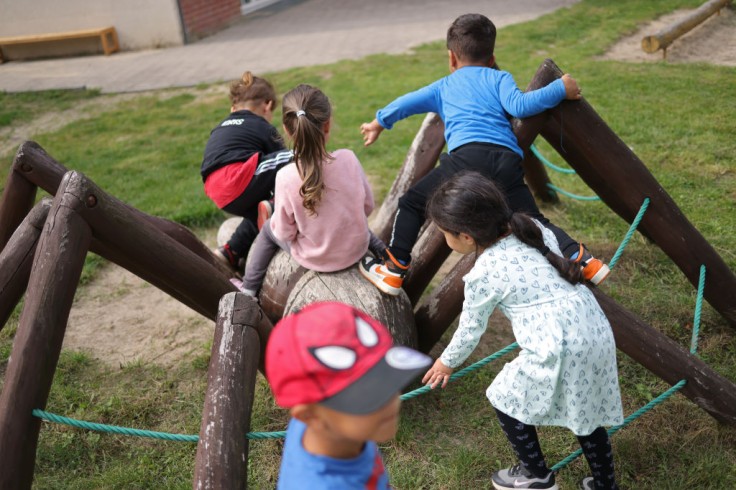
In today's rapidly changing world, the ability to work effectively as part of a team is a skill that holds tremendous value.
As parents, one of our most important responsibilities is to nurture qualities in our children that will set them up for success throughout their lives.
Fostering teamwork in kids is not only about creating harmonious playdates; it's also about instilling essential life skills that will help them thrive in various aspects of life, from school projects to future careers and beyond.
Parenting Strategies for Instilling Teamwork Values
Model Collaboration:Children learn best by observing. Demonstrate teamwork in your own interactions, whether it's cooperating with your partner on household chores or collaborating with colleagues. Your actions will speak volumes about the value you place on working together.
Encourage Open Communication: Teach your children how to express their ideas, listen to others, and find common ground. Create an environment where their voices are heard, fostering an atmosphere of respect for diverse perspectives.
Assign Cooperative Tasks: Give your kids tasks that require joint efforts. This could be cleaning up a room together, preparing a meal, or working on a creative project. This not only strengthens their teamwork skills but also enhances their problem-solving abilities.
Celebrate Team Achievements: When your child achieves something as part of a team - whether it's winning a game or completing a school project - celebrate it as a collective triumph. This reinforces the concept that their contributions matter and that they are an integral part of a larger whole.
Why Fostering Teamwork in Kids Matters
In an era where collaboration is the cornerstone of innovation, the capacity to collaborate and contribute within a team setting has become indispensable.
By focusing on raising team players, parents can empower their children to navigate challenges, adapt to diverse perspectives, and achieve collective goals.
This emphasis goes beyond mere sports or classroom activities; it lays the foundation for effective communication, empathy, and leadership.
Nurturing Teamwork from a Young Age
The journey of fostering teamwork in kids starts early, often before they even set foot in a school. It begins with teaching them the fundamentals of sharing, taking turns, and understanding the importance of collective achievement.
Simple activities like family board games or cooking together can provide a platform for kids to experience working together, making decisions, and celebrating successes as a unit.
This early exposure helps them grasp the concept that teamwork leads to a greater outcome than individual efforts.
Raising Team Players Through Adversity
Challenges and conflicts are inevitable in any team setting, and these situations provide invaluable opportunities for growth.
Teach your children how to navigate disagreements, find compromises, and learn from setbacks. Emphasize the importance of resilience and cooperation in overcoming obstacles, fostering a mindset that values collaboration even during difficult times.
Fostering Teamwork in School and Beyond
As kids grow older and enter formal education, the lessons of teamwork gained at home become even more significant. Encourage them to participate in group projects, sports teams, and extracurricular activities that require collaboration.
These experiences not only develop their teamwork skills but also help them understand the synergy that arises from working collectively towards a shared goal.
Fostering teamwork in kids is an investment in their future success. By intentionally nurturing their ability to collaborate, communicate, and lead within a team, parents equip their children with skills that are essential in our interconnected world.
Whether it's raising their hands to participate in class, working on group assignments, or excelling in their chosen careers, these skills will continue to serve them well.
As parents, we have the power to shape our children into not only accomplished individuals but also exceptional team players who contribute positively to society.